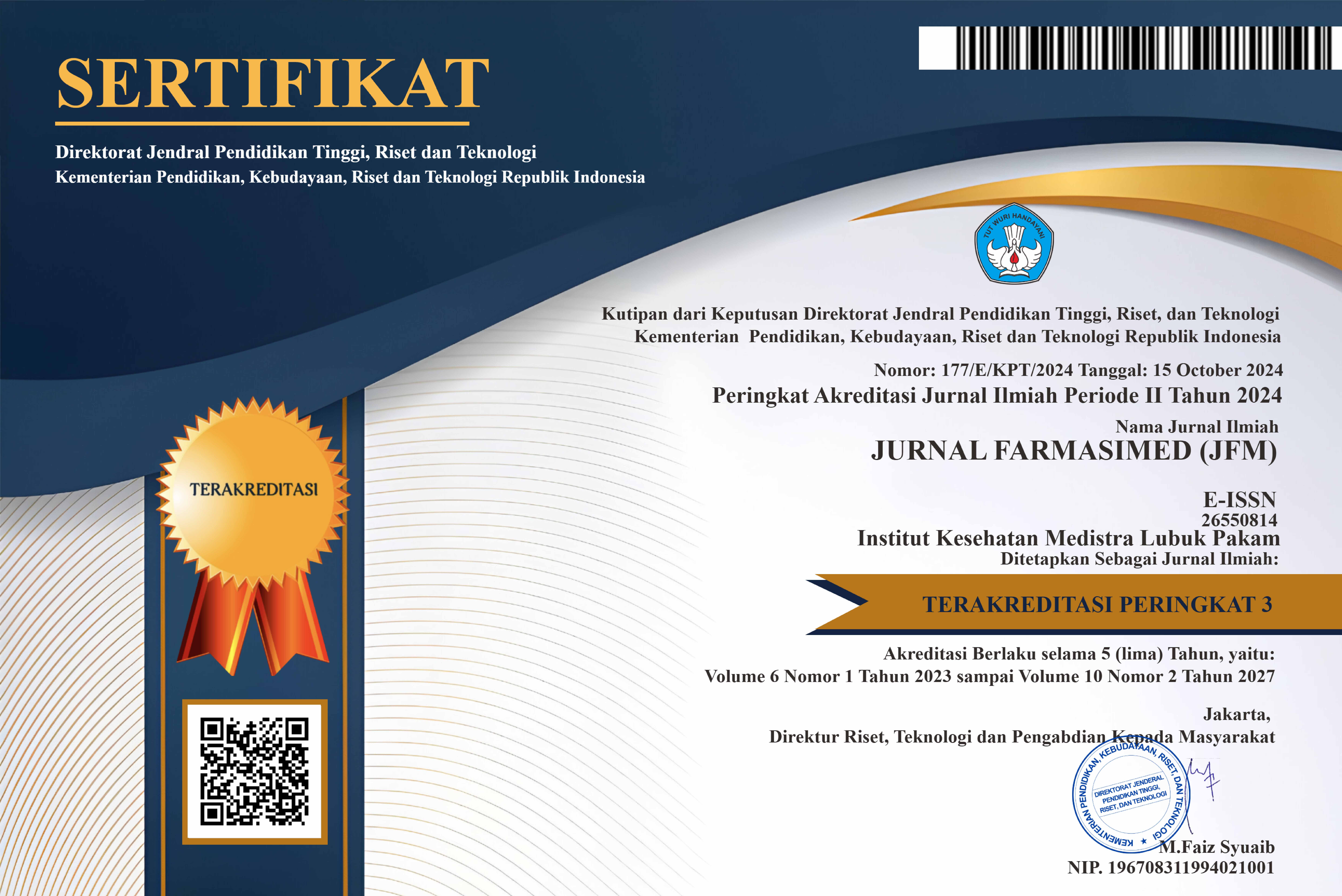ANTIBACTERIAL ACTIVITY OF ETHANOL EXTRACT PACAR AIR LEAVES (IMPATIENS BALSAMINA L.) AGAINST PROPIONIBACTERIUM ACNE
DOI:
https://doi.org/10.35451/jfm.v4i2.1067Keywords:
Kata kunci: Antibakteri, Ekstrak Etanol Daun pacar air, P. acnes, Keywords: Antibacterial, Ethanol Extract of Pacar air Leaves, P. acnesAbstract
ABSTRAK
Aktivitas antibakteri Impatiens balsamina L. telah dipelajari selama bertahun-tahun. Daun inai air mengandung flavonoid, saponin dan tanin yang memiliki kemampuan untuk menghambat pertumbuhan bakteri. P. acnes merupakan salah satu jenis bakteri yang dapat menyebabkan infeksi pada jerawat. Salah satu tujuan penelitian ini adalah untuk mengetahui aktivitas antibakteri ekstrak etanol daun inai air dan konsentrasi yang paling efektif dalam menghambat bakteri P. acnes. Penelitian ini merupakan penelitian eksperimen murni. Daun inai air dimaserasi dengan pelarut etanol 96%. Uji aktivitas antibakteri dilakukan dengan metode difusi cakram. Penelitian dilakukan dengan 3 variasi konsentrasi yang berbeda. Hasil penelitian menunjukkan adanya aktivitas antibakteri pada setiap konsentrasi. Kesimpulannya ekstrak etanol daun inai dengan konsentrasi 25%, 50% dan 75% memberikan penghambatan pertumbuhan bakteri paling efektif dengan konsentrasi 25%, 50% dan 75% yang termasuk dalam kategori kuat. Saran diharapkan bagi peneliti selanjutnya untuk dapat menguji bakteri lain dan membuat formulasi dari ekstrak daun inai air.
ABSTRACT
The antibacterial activity of Impatiens balsamina L. has been studied for many years. Water henna leaves contain flavonoids, saponins and tannins which have the ability to inhibit bacterial growth. P. acnes is one type of bacteria that can cause infection in acne. One of the objectives of this study was to determine the antibacterial activity of the ethanol extract of henna water leaves and the most effective concentration in inhibiting P. acnes bacteria. This research is a pure experimental research. Water henna leaves were macerated with 96% ethanol as solvent. Antibacterial activity test was carried out by disc diffusion method. The research was conducted with 3 different concentration variations. The results showed that there was antibacterial activity at each concentration. The conclusion is that the ethanol extract of henna leaves with concentrations of 25%, 50% and 75% gave the most effective bacterial growth inhibition with concentrations of 25%, 50% and 75% which were included in the strong category. Suggestions are expected for further researchers to be able to test other bacteria and make formulations from water henna leaf extract.
Downloads
Downloads
Published
Issue
Section
License
Copyright in each article is the property of the Author.

























